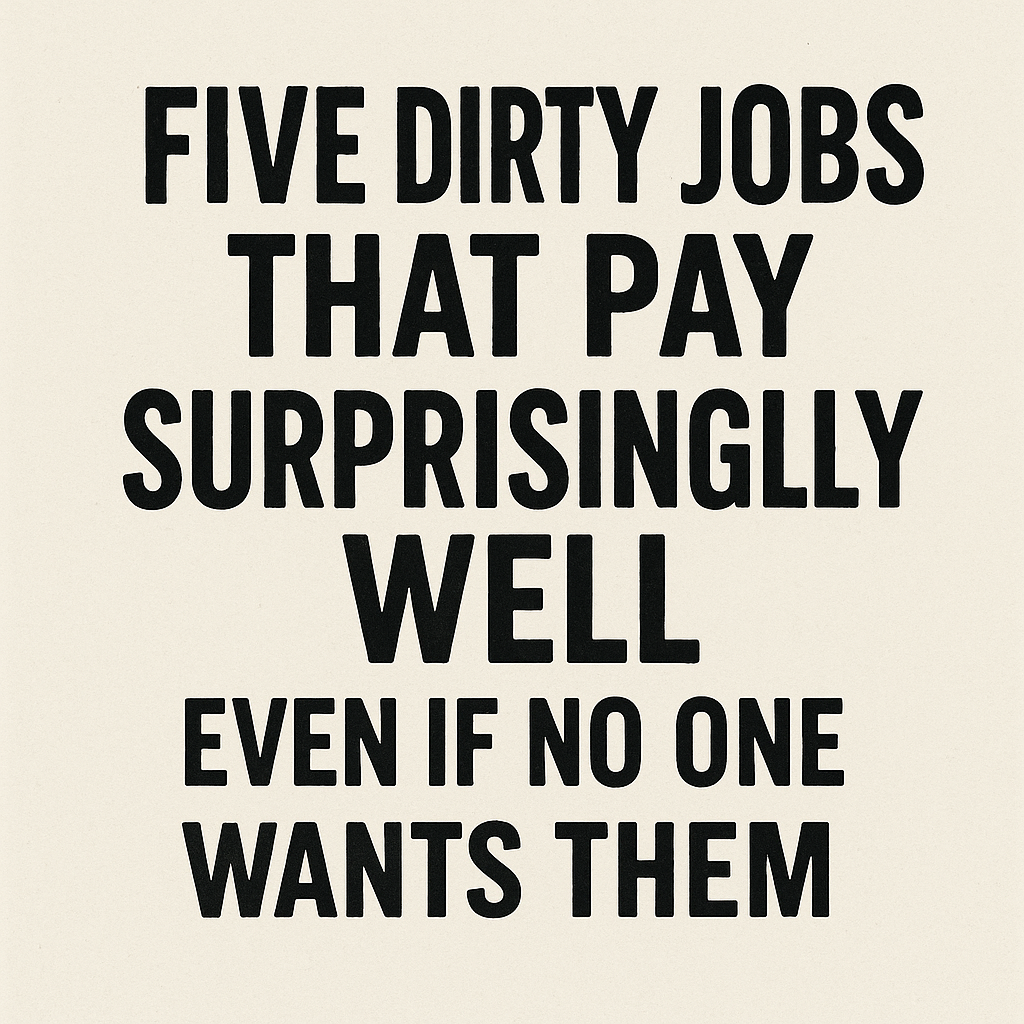Let’s face it—when most people imagine a high-paying job, they picture sleek offices, coffee breaks, and laptops. But there’s a whole category of essential, hands-on work that pays just as well (sometimes better), even though it’s messy, tough, and far from glamorous. These are the dirty jobs—physically taxing, often stigmatized, and generally the kind of work most folks avoid. Still, someone’s got to do them, and those who do are often rewarded handsomely for it.
Here are five well-paid, dirty jobs that people rarely talk about—but probably should.
1. Garbage Collector / Sanitation Worker
Average Pay: $37,260–$100,000+ (varies by location and overtime)
Picking up other people’s trash is nobody’s childhood dream, but it pays. Sanitation workers deal with everything from spoiled food and used diapers to sharp objects and chemical waste—all while braving heat waves, snowstorms, and early-morning shifts. The upside? In cities like New York, thanks to unions and overtime, some garbage collectors earn six figures. It’s tough, smelly, and physically draining, but it doesn’t require a college degree and offers excellent job security.
2. Wastewater Treatment Operator
Average Pay: $58,696–$79,740
Ever wonder what happens after you flush? These professionals manage that not-so-glamorous part of daily life. Working with raw sewage, managing treatment systems, and enduring strong odors are all part of the job. It’s not for the faint of heart (or nose), but it’s vital for public health and pays accordingly. No college degree is necessary, but specialized training and certifications are usually required. It’s hard work in unpleasant conditions—but it keeps the world running clean.
3. Oil Rig Worker (Roughneck)
Average Pay: $54,300–$166,500 (with experience and bonuses)
Oil rigs are no joke. Whether on land or out at sea, roughnecks work long hours with heavy machinery in dangerous environments. The risks include fires, falls, and serious injuries, not to mention weeks away from family. Still, for those who can handle the physical demands and isolation, the financial reward is real. With experience and bonuses, some workers can make well into six figures. It’s one of the toughest gigs out there—but also one of the most lucrative.
4. Crime Scene Cleaner
Average Pay: $44,000–$80,000
Cleaning up after a crime, suicide, or accident isn’t just physically demanding—it’s emotionally intense. These professionals deal with biohazards, often wearing full protective gear while scrubbing away the worst kinds of messes. The psychological toll is high, but so is the pay. Especially in larger cities, crime scene cleanup is both in-demand and well-compensated. It’s not for everyone, but those with the grit for it can make a solid living while helping families through some of their hardest moments.
5. Landfill Gas Technician
Average Pay: Around $100,000
At the intersection of garbage and energy, landfill gas operators do the dirty work of managing methane gas collection systems at waste sites. It’s smelly, physically intense, and often involves operating heavy equipment in harsh conditions. But it also contributes to renewable energy solutions—and the paycheck reflects the risk and discomfort involved. You won’t need a college degree, just the right training and the willingness to work in a truly messy environment.
Why These Jobs Pay So Well
These jobs are difficult, uncomfortable, and sometimes even dangerous. But that’s exactly why they come with competitive salaries. Most don’t require expensive degrees, which makes them accessible to a wide range of people. Still, not everyone can stomach the physical, emotional, or social challenges, so demand often outweighs supply.
Many of these roles also face changes from automation and shifting technology, which means workers must stay adaptable. But for those who can handle the grit, there’s real pride—and money—in doing work that matters.
If you’re okay with getting your hands dirty and aren’t afraid of a little hard labor, these careers offer more than just a paycheck. They offer stability, purpose, and a reminder that some of the most important jobs are the ones nobody wants to do.

